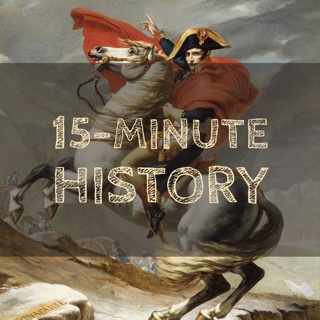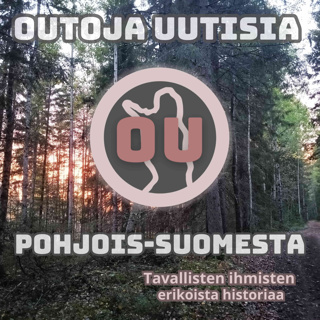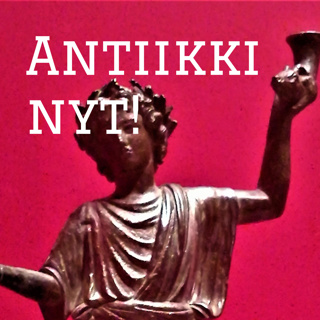
Colt, Gatling, and Browning | Shooting for the Future (Republish)
Samuel Colt’s name is forever linked to the company he founded and the revolver he called the “Peacemaker.” Born in Connecticut in 1814, he was steeped in America’s gun culture from an early age. His grandfather had served in George Washington’s army, and Samuel inherited an old flintlock pistol from the family hero when he was only six. At the age of fifteen, while working in his father’s textile plant, he built a galvanic cell (basically an early battery) and used it to set off explosives beneath the surface of a nearby pond during the Fourth of July. He continued to experiment with chemicals and combustion—as many young men do—and became fascinated by inventors’ work to create a firearm that could shoot more than bullets before needing to reload.Join us as we teach you about Samuel Colt, Richard Gatling, and John Browning. In this episode, you'll learn about their work, their impact on history, and how their names are culturally relevant - beyond the brand - in our world today.
28 Heinä 15min

Pop Quiz | The War of Jenkin's Ear (or) That Escalated Quickly!
What started as a simple question about The War of Jenkin's Ear devolved into a mighty whirlwind on social media, immortality, and Jon's opinion of Elon Musk!Let us know your thoughts or ask questions in the comments below, and tell us if you have ideas about new pop quizzes as well.
24 Heinä 5min

The Ash Heap of History | The End of the Cold War (Republish)
During the summer break, the 15-Minute History podcast team are republishing some of their favorite episodes. This episode originally aired on March 20, 2020.___The world's most powerful communist leader ultimately signed his own resignation with a capitalist's pen on Christmas Day 1991. This episode traces the stunning reversal of the Cold War from 1979, when the Soviet Union seemed poised for global victory with only nineteen non-communist nations left outside NATO, to the peaceful collapse of the entire communist empire just twelve years later. Through the strategic partnership of Pope John Paul II, Margaret Thatcher, and Ronald Reagan, the West forced Moscow into an economic competition it couldn't win, while Gorbachev's own reforms backfired as Soviet citizens tasted Western freedoms. Discover how three leaders changed history and why the Cold War's end wasn't the happy ending many expected.
21 Heinä 20min

Pop Quiz | Holy Relics?
Why, in medieval times, were holy relics so popular? Was the church displaying them to give people hope in the divine or for financial gain, or both? In this pop quiz, Joe and Jon discuss the possible answers while asking the fundamental question: Do these holy objects actually have power?Join us every Thursday this summer for new pop quizzes and leave a comment below with a topic you'd like us to cover!
17 Heinä 5min

What If? | A Lasting Peace at Tilsit (Republish)
During the summer break, the 15-Minute History podcast team are republishing some of their favorite episodes. This episode originally aired on July 12, 2021.___The raft floated in the midst of the River Niemen. On it were two beautiful pavilions, one for the Emperor of the French and the other for the Czar and Autocrat of All the Russias. In the French tent, Napoleon Bonaparte argued with his foreign minister, Charles-Maurice de Talleyrand, over how harsh the peace terms with the defeated Russians should be. Talleyrand, a servant of every revolutionary government since 1789, was a snake in silk stockings, but he knew foreign policy better than anyone else in the emperor’s entourage. He begged the emperor to treat Russia gently and put an end to fifteen years of war. But Napoleon, flush with the victory at Friedland earlier that year, was determined to humiliate Alexander I, and Talleyrand, ever the obedient servant in public, fell silent. What if Napoleon had heeded Talleyrand’s advice in 1807 and treated the Russians with more respect? What would our world look like today if history had taken a different course? In this series of bonus episodes on “15-Minute History,” Joe and I will be sharing some of our favorite “What If?” scenarios from this series with you. Building on the theme of Season Four, learning from history, we hope to provide some lessons on how individuals shape the destinies of large groups and entire nations.
14 Heinä 10min

Pop Quiz | "Stagflation"
With economics being all the rage these days and everyone on social media becoming experts in tariff and spending policy, Joe and Jon discuss one of the most serious economic problems a country can face.Join us every Thursday this summer for new pop quizzes and leave a comment below with a topic you'd like us to cover!
10 Heinä 4min

What if? | Pizzaro & the Potato (Republish)
During the summer break, the 15-Minute History podcast team are republishing some of their favorite episodes. This episode originally aired on August 30, 2021.___From 1531-1532, Pizzaro and his group conquered and destroyed the Inca Civilization. Climbing the Andes Mountains, they probably never questioned the ability of the Inca Empire to feed itself in the absence of cattle and wheat. That was, by most estimations, the farthest thing from the mind of the conqueror. Amongst the riches they stole and the mining they conducted, a resource emerged that McNeill believes would have altered history had it not been discovered and transplanted throughout the world. That discovery was the potato.What if Pizzaro hadn't brought the potato to Europe? Join us as we continue asking "What if", discuss what might have happened if the conquistador had left the potato behind in the ruins of his conquest, and how such a decision would have changed the world we know today.
7 Heinä 9min

Pop Quiz | "Sherman's Neckties"
Recently, Jon mentioned "Sherman's Neckties" in an episode that referenced the American Civil War. Now it's time to talk about these fascinating--and terrifying--examples of psychological warfare!Join us every Thursday this summer for new pop quizzes, and comment below with any topics you'd like us to cover.
2 Heinä 3min





















